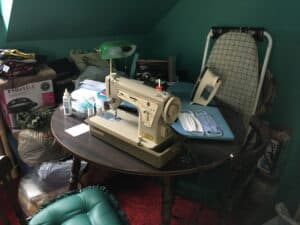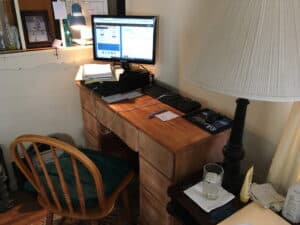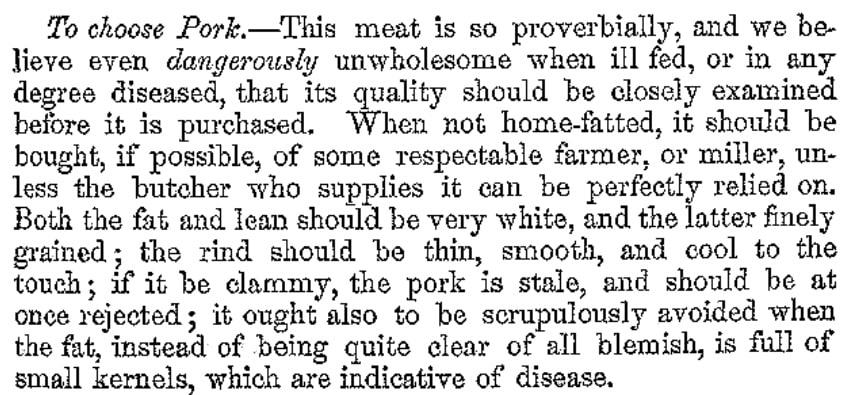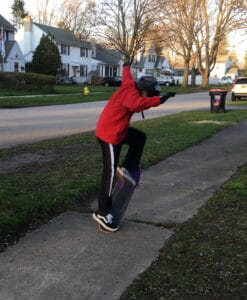Memory and the Pandemic Experience
By Anne Dealy, Director of Education and Public Information
An account of my COVID-19 pandemic experiences will not make adventurous reading in the future. But then, who knows. I find Adelaide Prouty’s recordings of her daily life and observations fascinating to read. Yet she did not do anything that is traditionally considered consequential.
I am very lucky. My husband and I both still have our jobs. We are not on the front lines of fighting this epidemic. No one we know has gotten ill or is working there. I am working from home as best I can, while trying to supervise my 12-year-old son’s schooling. My husband is going into work for part of the day, but his workplace is closed to the public and almost no one is there. We are generally homebodies, so we have an easier time sitting at home than some people. Our worst experience so far is concern for elderly parents, two snowbirds in Florida and one in a nursing home.
As has been said and written repeatedly, this pandemic experience is unprecedented. Here are just a few of the things I never would have guessed I’d be doing two months ago:
- Disinfecting doorknobs in my house on a regular basis
- Having drivers leave food deliveries on my steps
- Letting my child play video games and watch Youtube/TV for hours and hours a day
- Wearing a homemade surgical mask to Wegmans
- Having to choose between giant bags of frozen vegetables at BJs or a limit of two small bags at Wegmans
- Not buying gas for the past 6 weeks (I commute from Rochester, so this is exceptional)
- Not communicating face-to-face with my co-workers for weeks
- Planning an exhibit over the phone and email
- Checking store shelves for toilet paper, alcohol and disinfectant on every visit
- Seeing Wegmans’ shelves empty of flour, pasta, toilet paper, paper towels, tissues
- Being absent from Geneva for 6 weeks
- Keeping library books for 10 weeks and counting
- Not baking 1-2-3-4 cake with fourth graders at Taking Tea for the first time in 20 years
My first task when I learned I would be working from home was to figure out where and how. Since the Historical Society does not have a cloud-based or server-based system to log into, I brought my computer to my home and set it up. The space I once used for a home office was taken over by my son as his gaming and computer station a couple of years ago. When I had to use our laptop, I had been working off of two dining room chairs! That wasn’t going to work. Fortunately, I had purchased a desk in 2016 for my son and started refinishing it. Life happened, and I never got to the staining and varnishing, but it would do. It was still in my garage, covered with a towel. It still doesn’t have knobs on the drawers as you can see.
Except for walks around our suburban Rochester neighborhood, since March 17 I have only left the house once a week to go to the grocery store. I have always been one to cook at home, so doing that has just become more intense. Meal planning is more challenging when you don’t know what might be available at the supermarket. Life and work have overlapped as I researched domestic labor at Rose Hill. Reading 19th-century cookbooks, I was grateful I don’t have to consider whether meat might poison my family when shopping.
Schooling is a challenge for all parents, teachers, and students right now. My son’s school district already had a 1-1 iPad program in place, so the teachers had a way to assign and collect school work that the students were already familiar with. It was still a rocky roll out. You get a sense of the hard work Geneva teachers put in from their Twitter posts. Here are just a few accounts: Mr. Barry, Miss DeHart, and Miss Hull. My sister is a teacher in private school and had to figure out how to remote teach third graders in one day, with little technical infrastructure in place. Even with students who come from families with more resources, she tells me that it is very hard to reach all of the kids. Some of the teachers in my son’s public school report only 50% or 75% of the students completing assignments. I worry about those kids in families where parents don’t or can’t reinforce the importance of learning, or who simply don’t have the resources to connect remotely.
Thinking as a historian, I tend to place my experience in what I know of the past. Given the number of articles I’ve seen about the 1918 flu pandemic and the Black Plague, journalists do this too. I remember Robert Brown’s 2018 lecture at the museum on the flu pandemic. He ended with the warning that we were due for another serious pandemic of that sort. I also went back and read my 2013 blog post on the 1878 diphtheria epidemic. Perceptions of that disease now seem unsettlingly familiar. Despite a much better understanding of disease, we face the same questions and uncertainties about what to do as our predecessors in the city.
I am a firm believer in the power of the written record to reveal the past. Yet I have to admit this is the first time I have written anything about my pandemic experience. Despite not needing to leave the house, my days still seem to be too short to get it all done. Recording our experiences however, may be the key to remembering them in the future. As this article details, those on the front lines, those who experience illness in their families, those with emotionally-charged experiences, will remember the pandemic most clearly. We are already seeing the results of trauma experienced by doctors, nurses and other emergency responders. Those of us sheltering at home may just remember the pandemic experience as a blur of sameness. Things that are new and different are memorable. Staying at home, doing the same things with the same people, are not.
What might future historians and generations need to understand the COVID-19 Pandemic? All of us have a story to tell on how the pandemic is affecting our lives. Are you in an at-risk group or have someone in your home who is? How has the stay-at-home order affected you? Do you shop less or use a grocery delivery service? For students at home, what has your experience been like? What is your new normal? Join the Geneva Historical Society in documenting this historic moment through “We Stay At Home: A Record of Geneva During the 2020 Pandemic.” Share your story through narratives (a letter, poem, song, recipes, and short story), images (photographs, screenshots of social media, memes), audio, videos, and files (emails, flyers, announcement, text messages, tweets). To share your story, go to https://historicgeneva.org/programs-and-exhibits/we-stayed-at-home/.




